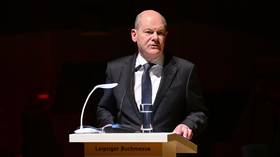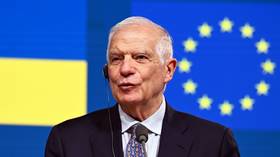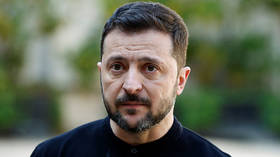Putin won’t be allowed to ‘dictate peace terms’ in Ukraine – Germany

Germany will not let Russian President Vladimir Putin forcibly alter Ukraine’s borders or impose the terms of peace, Chancellor Olaf Scholz has vowed.
Speaking to lawmakers in Berlin on Wednesday, Scholz insisted Germany “will not accept a dictated peace at the expense of Ukraine.”
“Law is stronger than violence,” the chancellor said, claiming that Putin had sought to violate that principle with the launch of Russia’s military operation against Ukraine in February 2022. “We will not let him get away with this,” he added.
Scholz insisted that Germany’s backing of Ukraine will not decrease, and that expecting otherwise would be a “miscalculation.”
He reiterated his criticism of Putin’s reelection last weekend for a fifth term as president, saying it showed that “Russia is not strong.”
However, as EU foreign policy chief Josep Borrell acknowledged in an interview on Wednesday, European allies will be hard-pressed to fill the funding gap if Kiev’s biggest backer, Washington, reduces its support. US President Joe Biden’s administration ran out of funding for Ukraine in January and has struggled to secure congressional approval for over $60 billion in additional military and financial aid.
Scholz made his comments ahead of an EU summit scheduled to begin on Thursday in Brussels. Major topics of discussion will include efforts to ramp up aid to Ukraine, as well as the bloc’s response to the Israel-Hamas war. Russian forces have made battlefield gains in recent weeks, and US defense chief Lloyd Austin warned on Tuesday that Ukraine’s very survival will be at risk if the West fails to provide more weapons to Kiev.
Even as he lobbies allies for more Ukraine aid, Scholz has resisted political pressure to provide Kiev with long-range Taurus missiles, saying that such an escalation could draw Germany into a direct conflict with Russia. Speaking at the Bundestag on Wednesday, he told lawmakers that debate within Germany over the Taurus issue is “nothing short of ridiculous.” He added that the controversy isn’t well understood outside of Germany, describing it as “embarrassing for us as a country.”














